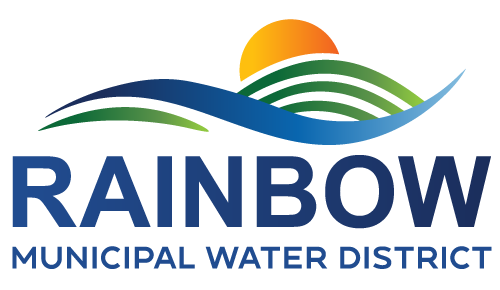What Not To Flush

Keep the Wastewater System Clean
Rainbow Water maintains 9,000 water and 3,500 sewer connections, and everything flushed down the drain is processed in the wastewater system. The pipes in your home connect directly to Rainbow Water’s infrastructure and can cause backups due to clogs from foreign objects. Be part of the solution and learn how you can help keep your pipes and the wastewater system clean.
Don’t Rush to Flush
The toilet may seem like a catch all for items, however, only bodily fluids and toilet paper should be flushed. Remember if it does not come out of your body, don’t flush it down the potty. The largest contributor to system back ups are wipes and personal hygiene products.
• There are no flushable wipes, cotton swabs, diapers, tissues, pads or paper towels that are safe for flushing. These items can cause costly and messy backups in your home and Rainbow Water’s infrastructure.
• Pause before disposing kitty or pet litter as there is no litter safe to flush. All animal waste should be disposed of in a bag, tied tightly and thrown in the trash.
When in doubt throw items in the trash.
Don't Be a Pain in the Drain
Rainbow Water experiences challenges with wastewater clogs from items that do not dissolve and combine with fats, oils and grease (FOGs). Pouring FOGs down the drain causes items to stick to pipes and results in blockages. Take the time to pause before pouring anything other than water down the drain and follow the helpful tips below.
Reduce, Reuse and Recycle
Read more helpful tips and wastewater facts on household waste disposal below.
- Properly dispose of fats, grease and oils by allowing liquid to cool and place into a jar, container or other item to then reuse for cooking or throw in the trash.
- Pause before placing food and table scraps in the garbage disposal. Reduce waste by scraping food from plates and pans to recycle in a compost bin or green organics collection container.
- Personal hygiene products should be thrown in the trash including bandages, cotton swabs, facial wipes, feminine products, and diapers.
- Remember to remove all stickers, rubber bands and ties from produce before placing in the garbage disposal. These items accumulate in the wastewater system and cause backups in the treatment process.
- Wet wipes are not flushable, even those labeled as safe for flushing should be thrown in the trash and never down the toilet.
- Reduce hazardous waste by not flushing or pouring medication down the drain which can leach into the wastewater system. Antifreeze, cleaning supplies, motor oil, paint, pesticide and other hazardous products should not be disposed down a drain or washed down the storm drain.
- Hazardous items should be recycled at local or county recycling facilities.
- The best way to dispose of medication is to crush and mix with coffee grounds, kitty litter or dirt before sealing them in a plastic bag and disposing of them in the trash.
- Customers may also dispose of unwanted or expired medication by recycling at the San Diego Sheriff’s Department’s year-round disposal kiosk at the Fallbrook Substation. Read more about the program on the San Diego Sheriff's website. Unwanted medication drop off is available at Fallbrook Pharmacy and CVS Pharmacy.
- Dispose of household hazardous materials should not be disposed of in the toilet, drain or outside on the street where it may lead to the sewer system. Avoid pouring motor oil, pesticides, paint and solvents down the drain. These highly toxic items cause longterm damage to the environment and should be properly disposed through household hazardous waste transfer facility. Locate a local drop off facility on Paint Cares' website and County of San Diego hazardous waste disposal website. Explore options recomended
- Explore more about properly sorting trash and what items should be placed in green, waste or recycle bins by searching on the EDCO website. Propertly soritng trash helps reduce the amount of waste sent to landfills, increases recycling and encourages waste reduction for more donations to second hand stores.
Be Sewer Smart
Want to learn more about maintaining a healthy sewer? Watch the video from Eastern Municipal Water Distirct on how to be sewer smart.
